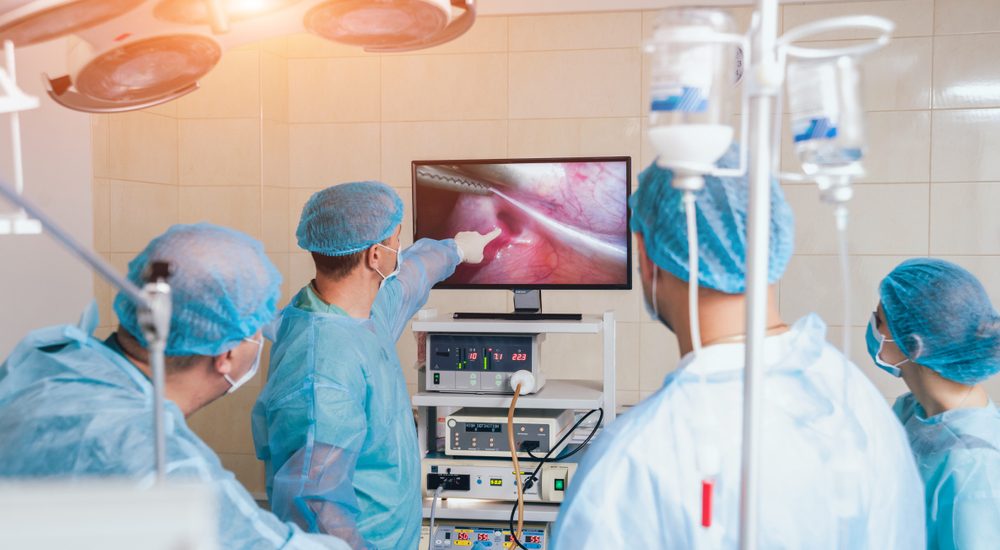- August 20, 2022
- Posted by: admin
- Category: Laparoscopy

Laparoscopic surgery is one of the many newer, safer, and better surgical techniques that have emerged in recent years and improved the quality of life for surgical patients. Moreover, Invasive surgery is another name given for this innovative surgical technique.
When doing abdominal operations, laparoscopy treatment in Varanasi is used and incisions between 6 and 12 inches long are made. Not many people know but it is also known as Keyhole surgery within many laparoscopic hospitals.
How laparoscopy is done?
As the name implies, a laparoscope is used during this procedure which is a thin, lean instrument with a tiny camera and light on the tip. The surgeon offering laparoscopy makes a few millimeter-long incisions through the abdomen wall to implant various devices, including a laparoscope, and then does the procedure while watching a video of it on a screen.
Many operations are performed using laparoscopy treatment. Less discomfort, less tissue and skin cutting, fewer wound problems, a quicker post-operative recovery, and a shorter hospital stay are some of the key benefits of this surgical method. Today, numerous ailments can be treated using laparoscopy in Varanasi, some of which include:
- Appendicitis, Crohn’s disease, duodenal perforation, diverticulitis, cancer, rectal prolapse, and chronic constipation can all be treated with abdominal surgery.
- Procedures for the gallbladder.
- Hysterectomies and other gynecological procedures.
- Surgery for hernias.
Laparoscopic surgery advantages:
Laparoscopic surgery has a number of benefits over earlier, more traditional surgical techniques.
- Very few scars.
- Stay in the hospital for fewer days (in traditional methods, the recovery time of a patient was 4 to 8 weeks and hospital stay was 1 or more than a week, but in laparoscopic surgery, recovery time is 2 to 3 weeks and hospital stay is of only 2 nights).
- Fewer tissue cuts.
- Less pain as the scar heals means less need for painkillers.
- Return to your regular life sooner.
- Due to the scar’s modest size, it’s quick healing.
- The risk of infections decreases when internal organ exposure to external pollutants decreases.
Laparoscopic surgery risks include:
The following are some of the risks involved in laparoscopy treatment in Varanasi:
- Trocar injuries, which happen during insertion into the abdominal cavity, offer the biggest risk. Umbilical hernia, abdominal wall hematoma, umbilical wound infections, etc. are examples of this type of damage.
- These injuries are more likely to occur in those with low BMI or a history of abdominal surgery. These wounds pose a risk to life.
- Few surgeons occasionally use electrodes that leak current into the nearby tissues, causing an electrical burn that might cause peritonitis.
- There is a chance of hypothermia and peritoneal damage during insufflations because of the increased exposure to cold, dry gases. Using heated and humidified carbon dioxide, surgical humidification treatment is used to minimize insufflations (CO2).
- Due to the fact that many patients with pulmonary diseases are unable to tolerate gas in the abdominal cavity (pneumoperitoneum), surgeons are forced to switch from laparoscopy to open surgery at some point during the procedure.
- Risks associated with laparoscopic surgery include coagulation disorders and thick adhesions from prior abdominal surgery.
Laparoscopic diagnostics:
Laparoscopy at most laparoscopic surgeons in Varanasi is now frequently used in the diagnostic process to provide a conclusive diagnosis of the issue. Some instances include:
- Abdominal pain for which no other investigational techniques have produced a conclusive diagnosis.
- People with trauma for whom the cause of the bleeding was unknown.
- Diagnostic laparoscopy is occasionally required to determine the exact source of gastrointestinal problems.
- It is useful for accurate disease staging in many intra-abdominal cancers.
Final words
If you are planning to undergo laparoscopy surgery in the near future, always consult the best medical expert in the same regard. This way, you can eventually cut down the risk while further bringing the best benefits of this surgery to your health.
